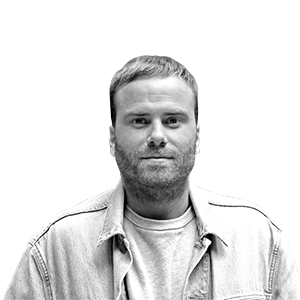The Brazilian who traded Copacabana for Barceloneta: "When I was 15, I came to Catalonia to fulfill a dream."
Felipe Perrone, player of the Club Natació Atlètic Barceloneta, talks to ARA about his sporting career


BarcelonaThe beaches of Rio de Janeiro were his childhood playground, his current office has sea views, his son was born at the Hospital del Mar in Barcelona, and when he has vacations, he boards a sailboat to relax with his wife somewhere with a sea. Felipe Perrone (Rio de Janeiro, 1986) is a man of the sea who one day, at just 15 years old, decided to leave the Atlantic Ocean for the Mediterranean, following in his brother Kiko's footsteps to return to his grandmother's homeland, Catalonia. He had a dream. "I've achieved much more than that teenager ever expected," says Perrone, 39, in a conversation with ARA in a room at the Club Natació Atlètic Barceloneta (CNAB). Evidently, it has sea views.
"My grandmother gave us a very strong legacy of Catalan culture, which we lived at home. She's a grandmother who has always been the matriarch of the family," explains Perrone in perfect Catalan. The family lived in Gironella until 1950, when poverty under the Franco regime forced them to move to Brazil. But they never forgot their past. Shortly after, Perrone and his brother returned to Catalonia in 2001, half a century after their ancestors had packed their bags. "Barcelona is my home. Catalan culture is the one I like the most, and I'm attracted to many aspects of this lifestyle," he says.
The teenage Felipe, who surfed when there were waves in Rio de Janeiro and went spearfishing when there weren't, also found time to watch Spanish national team water polo matches around the canal. Teledeporte, who had already arrived in Brazil by then. That team had won the 2001 Fukuoka World Cup and finished fourth at the 2000 Sydney Olympics. It was the team of Jesús Rollán, Iván Pérez, Dani Ballart, and company. "I wanted to experience that firsthand," he recalls. That was the dream.
Perrone speaks to the ARA in a bathrobe and swimsuit just after finishing morning training with Atlètic Barceloneta. The area surrounding the outdoor pools of the sailor's club, where the photographer asks him to pose, is filled with blue sunbeds with people sunbathing as if it were summer. "The CNAB has gone from being a neighborhood club when I arrived in 2005 to becoming an international benchmark in water polo. Plus, it's a club that has the sea 10 meters away [laughs]. Today I arrived and said, 'This is my office.' Being able to train while looking out at the sea is very special." Atlètic Barceloneta and Perrone have a ticket to play in Malta starting on May 30th in the Champions League Final Four, a title they already won together in 2014.
This season, Perrone has chosen to play only European competition matches after once again failing to win a medal at the Olympic Games—a disappointment that left him with "an emotional hangover." "I've been thinking for six years that this is my last. I've enjoyed these last six years like a kid," he says with a playful smile. "But this year looks much more like it will be my last," he admits.
The act of giving up
What has led you to extend your career, for the time being, by six years? "Two things: enjoying the process, each training session, not just the match, and the level I deliver. If you're happy with the level you're delivering, everything is easier." Improved athletic training has helped with this. "Now in high-level sports, you take better care of yourself. Nutrition, rest, and working with psychologists. This has given me the extra leverage to be able to continue. Before, you'd leave training and live a normal life. Now, you take much more care of everything."
Working with psychologists, practically nonexistent in the sports world when Perrone began his career, has been a lifeline to hold on to. "What's different about high-level sports compared to other jobs is that you're totally exposed to people every weekend, and even more so when there's a big competition. This creates a pressure that's not easy to manage," explains Perrone. "I have children, and often my head is here [pointing to the pool]. There are people constantly observing your performance; perhaps something similar happens in theater. If you start to slip with age, people will say, 'This isn't the same anymore, look how he doesn't play anymore, look how he can't do it anymore.' It's not easy."
Perrone has not only had to give up spending more time with his children. "The pressure makes it hard to separate things. You're an athlete 24/7. I studied a university degree [in Business Administration and Management], but I didn't have a university life. I took exams and that's it. Then summer comes and you rarely get to take leisure trips because you have competitions. You miss out on some things," he explains. He also can't practice jiujitsu, another of his hobbies, due to the high risk of injury that this martial art entails. But he doesn't regret anything; on the contrary. "High-level sport allows you to experience very beautiful things. There are few things in life that give you this intensity," he concludes. The time will come to return to being that teenager who enjoyed surfing or treated spearfishing as a form of meditation.
